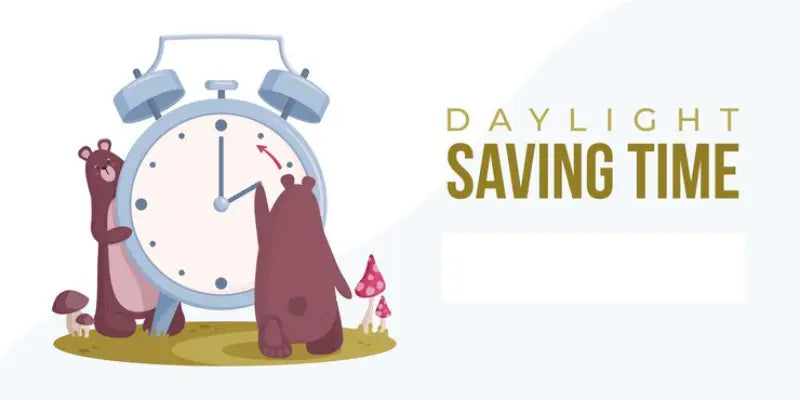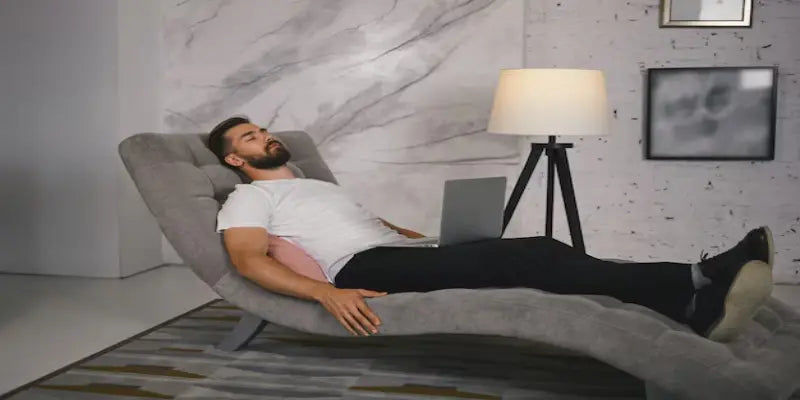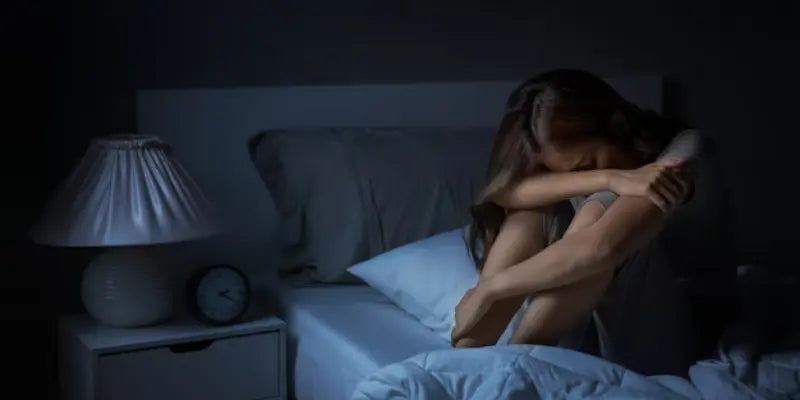
Sleep and Creativity: How Rest Influences Innovative Thinking
Sleep has a major influence on our creativity. When we don't get enough sleep, we not only feel sleepy the next day, but our thoughts are affected in ways we are unaware of. Sleep influences how both sides of the brain work.
Our brain has two sides: right and left. The right brain is more creative and generates thoughts outside of the box. The left brain is more disciplined and adheres to patterns and rules.
While the right brain is more creative than the left brain, both sides participate in the creative process. Better sleep allows the brain to establish connections and solve issues, which fuels the creative process. Without sleep, the brain struggles to create thoughts and work optimally.
The Stages of Sleep: How Each Phase of Sleep Affects Creativity
Each stage of sleep has a unique effect on creativity. During the early stages of light sleep, our brains begin the process of memory consolidation. As we fall deeper into sleep, our brains continue to strengthen the connections between neurons that hold our memories. Memory consolidation is essential for creativity because it allows us to draw on our previous experiences to produce new ideas and solutions.
During an 8-hour sleep period, your body cycles between non-REM and REM sleep stages three to five times. A whole cycle takes approximately 75-90 minutes, depending on individual variances. Each step rejuvenates your body while also assisting your mind in sorting and storing information from the previous day.
Non-REM Sleep
Before entering REM sleep, humans go through three non-REM stages of sleep. Each stage primes our minds and bodies for deep sleep.
Stage 1
During Stage 1, our heart rate, breathing, and eye movements all slow down. Our muscles start to relax. You may feel an occasional twitching sensation. After a day of activity, brain waves begin to slow down.
Stage 2
Stage 2 involves mild sleep. Your heart rate and breathing continue to slow. Your muscles relax even more, and eye movement ceases. Body temperature falls a few degrees. Brain wave activity continues to slow down, punctuated by tiny electrical signals.
Stage 3
In Stage 3, you have entered a deep, sluggish wave of sleep. Both your heart rate and breathing are at their lowest points. The muscles are entirely relaxed; it may be difficult to rouse you up at this point. Brainwaves are at their slowest. This stage accounts for around 20 percent of a person's entire sleep time.
REM Sleep
REM, or rapid eye movement, marks the end of the sleep cycle. During this stage, brain wave activity increases in a way that's similar to awakening. Most of the dreaming happens during REM. Your muscles are also temporarily paralyzed, preventing you from acting out your dreams.
How Sleep Improves Creative Thinking
According to research, people are more likely to come up with innovative solutions to issues following a period of REM sleep. This is most likely due to the associative thinking that occurs during REM sleep, which allows us to see situations from multiple angles and establish connections that we would not make while awake.
Memory Consolidation
Sleep is important for memory consolidation, which converts short-term memories into long-term memories. During sleep, especially deep and REM sleep, the brain examines and improves the neuronal connections that make up our memories.
This memory consolidation is critical for creativity because it creates a vast database of experiences, facts, and ideas from which to draw in our creative pursuits. Without this consolidation process, our ability to integrate disparate pieces of knowledge would be severely limited, hampering our creative potential.
Pattern Recognition
Lucid dreaming, or the ability to become aware of your dreams and even modify their meaning, gives us a unique way for increasing creativity. A lucid dream removes the restrictions of reality, allowing us to explore concepts and circumstances that would be inconceivable in our waking lives. This freedom to investigate the impossible can foster creativity.
A lucid dream allows us to actively engage with our subconscious mind, which may be a source of great creativity. We can ask questions, solve problems, or simply explore various scenarios, all of which might spark ideas for creative initiatives or solutions.
Regardless of the apparent benefits, lucid dreaming can be difficult to master. It requires practice and patience.
Calm Emotions
People who get enough sleep are more likely to wake up feeling refreshed. Sufficient sleep can make you feel more energized and have more good emotions. This surge reduces stress and increases your ability to take on more difficult jobs. More positive feelings may also motivate you to act on your creative ideas.
The Negative Effects of Not Getting Enough Sleep
It's true that getting too little sleep can have a serious impact on our ability to think creatively, the reverse is also true. Lack of sleep inhibits our cognitive capabilities, such as memory, attention, and problem-solving abilities, all of which are required for creativity.
Chronic sleep loss can have an especially negative impact on creativity. It can cause mood swings, decreased motivation, and increased stress, all of which can impair creativity. It can also hamper our ability to think divergently, which entails producing a large number of distinct ideas and is essential for creativity.
Poor Memory
Less sleep may interrupt the REM cycle, decreasing brain activity and making it more difficult to remember information. During REM, the brain consolidates the previous day's events into long-term memory. When this process is disrupted, you may find it difficult to remember your given chores or how to approach innovative ideas from the previous day.
Erratic Behavior
After a night of little sleep, you might feel grumpy during the day. This is because the prefrontal cortex has less control over the amygdala in your brain. According to research, when you get less than 7 hours of sleep, your amygdala becomes 60% more reactive. This causes mood swings and bad feelings. You may also have a more difficult time dealing with stress and worry, which could increase cortisol levels (stress hormone).
Less Concentration & Focus
When you don’t get enough sleep at night, you are more likely to feel exhausted and drained during the day. Many of our tasks that require multiple phases and long-term concentration can be challenging for our brains, even when we are fully rested. Multitasking or executing complicated tasks demands more energy and concentrate, which sleep deprivation reduces. It may be more difficult for you to focus on one job, switch between tasks, and finish complex tasks efficiently.
How to Get Better Sleep At Night
- Follow a consistent sleep schedule- An adult should get at least 7 hours of sleep every night to function properly during the day. Go to bed and wake up at the same time every day, including weekends. Being consistent strengthens your body's sleep-wake cycle. If you do not fall asleep within 20 minutes of going to bed, exit your room and do something calming. Read or listen to relaxing music. If you're exhausted, go back to bed. Repeat as needed, but stick to your sleep pattern and wake-up time.
- Reduce blue light exposure- Try to avoid using electronic devices an hour before going to bed. Exposure to too much blue light can have a negative effect on your sleep. You can block out blue light by wearing glasses, installing apps on smartphones that block blue light, and dim lights 2 hours before heading to bed.
- Take short naps- Take short naps during the day, 20-30 min is an ideal nap time as it doesn't allow you to fall into deeper sleep. Taking longer naps can have a negative impact on your sleep cycle calculator, it will be difficult for you to sleep at night if you have a long nap during the day. Also, try to take a nap in the first half of the day, not in the evening.
- Create a restful environment- Invest in a good quality mattress and pillow that supports your body and maintain a good posture. Make sure your bed provides adequate support, comfort, and room to help you wake up and move around less. Ensure that your room is at the proper temperature - between 16°C and 18°C (60°F to 65°F) is ideal.
- Avoid alcohol and caffeine- Wine and chocolate should not be included in your bedtime snack. Chocolate includes caffeine, a stimulant. Surprisingly, alcohol produces a similar impact. It makes you feel tired, but it is essentially a stimulant that interrupts sleep at night. Also, avoid anything acidic (such as citrus fruits and liquids) or spicy, which might cause heartburn.
- Destress before bed- The bills are building up, and your to-do list is miles long. Daytime problems often come to the surface at night. Stress is a stimulant. It activates the fight-or-flight hormones, which inhibit sleep. Allow yourself time to unwind before bedtime. Learning the relaxation response might help you sleep better and lessen your worry during the day. To unwind, use deep breathing techniques. Inhale gently and deeply, then exhale.
Conclusion
The relationship between sleep and creativity is deep and complex. Sleep is closely related to our creative potential, whether it's through creative problem-solving during REM sleep, inspiration from lucid dreams, or memory consolidation that lays the groundwork for our creative ideas. Understanding this relationship can boost not only our creativity, but also our overall health and productivity.
If you are someone who struggles with falling asleep, you should consider using a microfiber pillow. Microfiber pillows are designed to provide comfort and support, and help you get quality sleep at night. Their soft and hypoallergenic properties can create a conducive environment for relaxation, helping to alleviate discomfort and ease the transition into sleep. Additionally, microfiber pillows often offer breathability, keeping you cool throughout the night, which can be particularly helpful for individuals who tend to overheat while sleeping.








